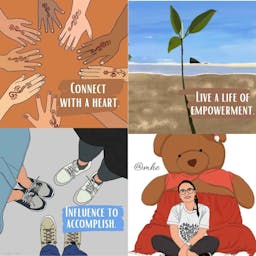How to support a Colleague After Sexual Violence? (Learn how to take action, report and get support when sexual violence happens to you or a colleague in the workplace) Part 2
Apr 11, 2021
Story
The first people survivors interact with after sexual violence can greatly impact their recovery process.
Knowing how to respond, what to say, and how to support friends or colleagues who have experienced sexual violence is essential to helping them on their path to recovery.
Ways to Support Survivors of Sexual Violence
- Be present.
- Listen actively and be engaged.
- Give them space to make their own decisions. Do not make decisions for them.
- Encourage them to express negative and difficult feelings that can help empower them.
- Accompany them, if they wish, during difficult moments of the response (medical care and psychosocial care appointments, making reports, consulting with lawyers, attending court).
- Maintain privacy and confidentiality about their information and experience.
- Be trustworthy.
- Show empathy, not sympathy.
What to Say to Survivors of Sexual Violence
- How can I help you?
- What do you need in this moment?
- Do you want to take action? And how?
- Everything you are feeling right now is normal.
- You have a right to feel this way.
- This is not your fault.
What Not to Say to Survivors of Sexual Violence
- Question their version of the events.
- Suggest that they might be lying or that the perpetrator is too nice to have done this type of act.
- Suggest that this is a misunderstanding that could be cleared up by talking to the perpetrator.
- Tell them that they are to blame for the experience.
- Tell them to get over their feelings or deal with things.
- Decide what actions and decisions they should take.
- Perpetuate victim-blaming attitudes or rape myths.
- Give false hope about actions or outcomes.
Being a Good Advocate for Survivors of Sexual Violence - Being a good advocate for survivors of sexual violence in the workplace can also mean helping the survivor push for change if they are not fully able to articulate what they need. This could mean helping a survivor:
- Get a specific type of support.
- Push for organizational and cultural change.
- Shift the conversation from what a survivor might have done to end up in a situation (victim-blaming) to how the workplace environment is a contributing factor that allowed the act to occur.
Protecting the survivor also means protecting yourself - The survivor is experiencing a trauma, but you might also experience vicarious trauma as you hear about the traumatic event. Make sure that you have access to support services, so that you can continue to be a good advocate and not suffer from lasting damage or effects while supporting a colleague.
Being a Good Advocate Means Being a Good Bystander - Being a good advocate means that you are an active bystander who will intervene and help prevent sexual violence in the workplace.
Follow these steps on how to be a good bystander:
- Say something. If you see something happening in your office, social circle, or in the field, say something. For example, if you see a colleague acting strangely at a party or overly intoxicated, help get him or her to a safe location.
- Take action. If it is safe to intervene in a situation that is actively happening, then do so.
- Offer help. Ask friends and colleagues if they need help or an escort out of a situation.
- Make a report. Report things you have witnessed through reporting chains. This can help provide more evidence when a survivor is ready to come forward, or give them the courage to speak up.
- Promote safety at work. Create an environment that helps prevent unsafe actions and behaviors from happening in the first place.
- Empower others to be bystanders. Your actions can help encourage other colleagues to become bystanders. This makes everyone safer.
This resource provides guidance for survivors and their colleagues in the aftermath of sexual violence occurring in the workplace.
Reference:
Cornerstone OnDemand Foundation, © Copyright 2019 Cornerstone OnDemand Foundation
https://www.who.int/violence_injury_prevention/violence/global_campaign/...




